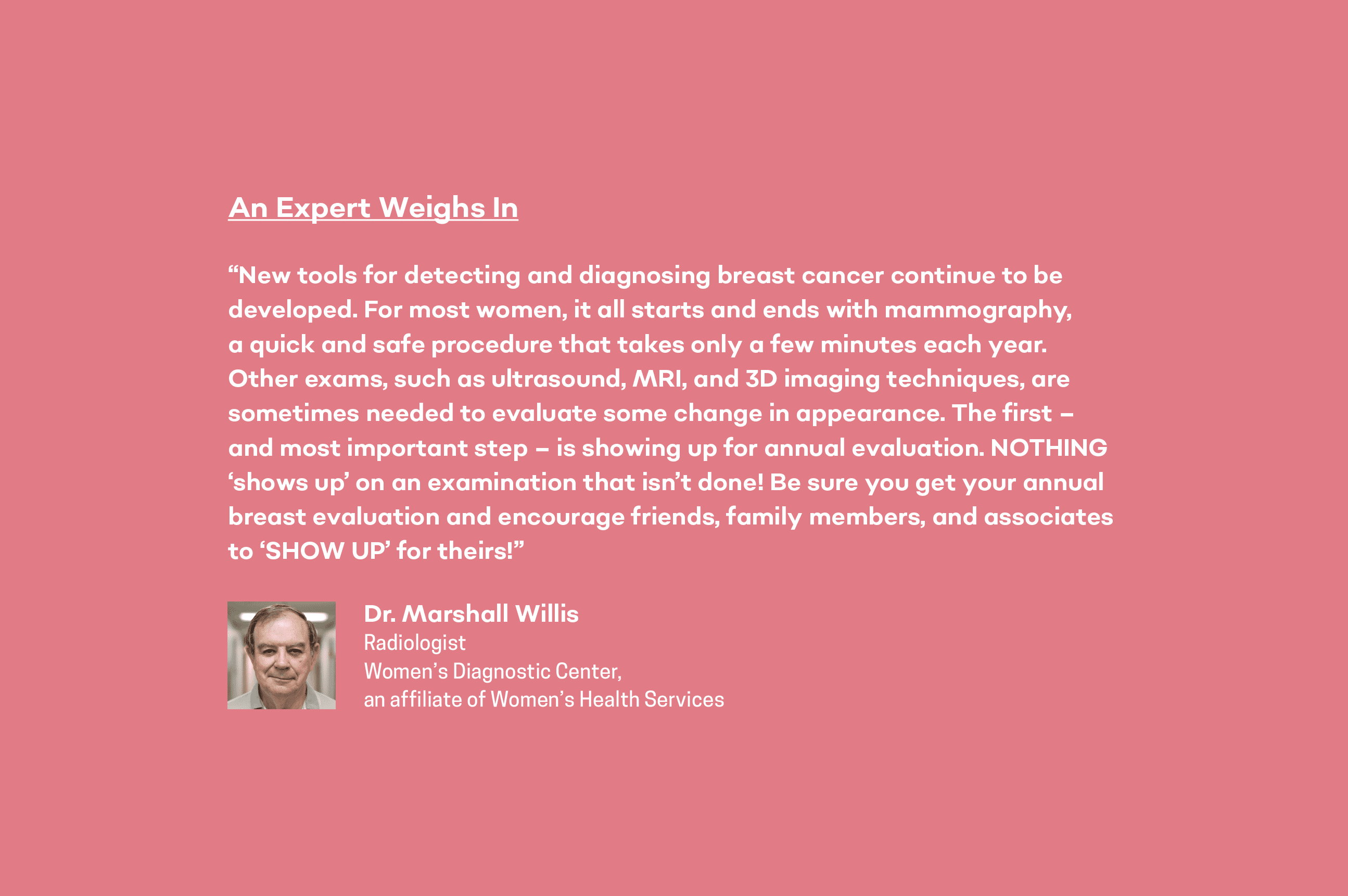1) Develop “Breast Awareness.”
Breast awareness is about knowing how your breasts normally look and feel – and paying close attention if something seems off. A reported 40% of diagnosed breast cancers are detected by women who feel a lump. If you notice any changes, even if they seem minor, it’s important to consult a health professional. Red flags include:
- a lump, hard knot, or thickening inside the breast or underarm area
- swelling, warmth, redness, or darkening of the breast
- change in the size or shape of the breast
- dimpling or puckering of the skin
- itchy, scaly sore or rash on the nipple
- inversion of your nipple or other parts of the breast
- nipple discharge that starts suddenly
- new pain in one spot that doesn’t go away
To check for any abnormalities, a monthly Breast Self-Exam (BSE) is essential. It involves using the pads of your fingers to feel your breast tissue. For full instructions, visit nationalbreastcancer.org/breast-self-exam.
2) Get Regular Clinical Breast Exams.
A clinical breast exam is a physical examination of your breasts by a doctor, physician’s assistant, nurse practitioner, or nurse. It is usually included as a routine check during your annual well-woman exam. According to the American College of Obstetricians and Gynecologists (ACOG), women age 19 and older should receive a clinical breast exam every year.
3) Get Regular Mammograms (40+).
The National Comprehensive Cancer Network recommends women have an annual mammogram (a 2D or 3D X-ray exam of the breasts) starting at age 40. Technological advancements have improved doctors’ ability to not only detect breast cancer earlier through these X-rays, but also to better identify the proper treatment plans. Doctors believe that early screening for breast cancer saves thousands of lives each year.
4) Know You Have Options.
Most health insurance companies pay for breast cancer screening tests. For those who are not insured, the Centers for Disease Control and Prevention’s National Breast and Cervical Cancer Early Detection Program offers free or low-cost mammograms. To see if you qualify, you can view eligibility requirements at cdc.gov/cancer/nbccedp. HS


